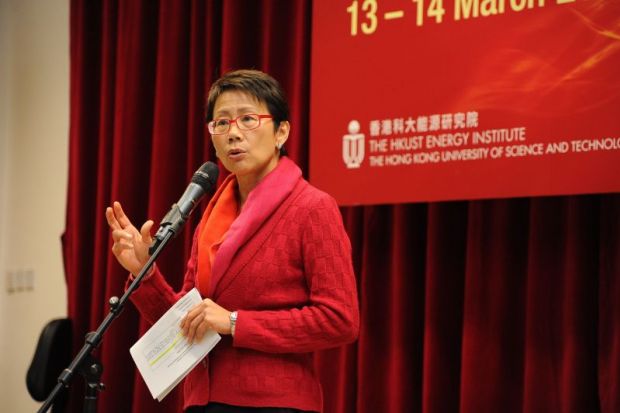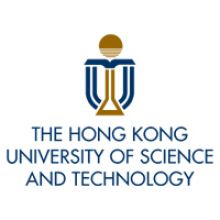Christine Loh is chief development strategist at The Hong Kong University of Science and Technology (HKUST), where she connects science with policymaking, including on the environment. She has been a lawyer, a commodities trader, an opposition lawmaker, a government official, an author of several books, and the founder of Civic Exchange, a policy thinktank. Throughout her career, she has fought for both environmental protection and equality for women.
Where and when were you born?
I was born in Hong Kong in 1956.
How did your early experiences shape you?
I come from a multicultural family, which I only realised was unusual when I became older. My father’s family is from Shanghai with a long traceable history, because an ancestor was a zhuang yuan [a scholar in Imperial China]. My mother’s family is Cantonese with a reasonably long history because the ancestors were compradors [Chinese merchants who did business with Westerners]. The Shanghainese-Cantonese mix helped me realise that not all Chinese were the same. My parents divorced when I was young and my mother remarried a Danish man. My half-sister is Eurasian. So, I also had a European upbringing because I lived with my mom and stepfather. My father emigrated to America, and his second family are Americans.
You’ve been a champion of gender equality, in particular fighting for property inheritance rights for indigenous Hong Kong women. How did the women in your own family influence you?
I have more grandmothers and great-grandmothers than anyone I know – a result of the men on both sides of the family having more than one wife! One grandmother was Indian and we spoke English with her. My mother and her sisters were all very elegant ladies with jobs. I grew up expecting to have to work.
What was it like moving to the UK to study law at the University of Hull?
I liked law. It suited me, but I didn’t really know that till I got into law. I had some very good teachers in England who made the law come “alive”. I played a lot of sport when I was at university – hockey, rock climbing and fencing. I would get up very early to do my studies – about 6am – then go to classes, so I could spend the rest of the day playing sport.
Why did you go back to school to study law again?
In 1997 I enrolled at City University of Hong Kong to do an LLM in Chinese and comparative law, so I could understand Chinese law.
You’ve changed careers many times: from law, to finance, to government, to opening a thinktank, and now to higher education. How has moving fields helped you?
I have tended to do things in approximately 10-year stretches. Life has just worked out that way. A decade or so is long enough to understand something but not so long as to become stale. I worry about being complacent. I have also been blessed with new opportunities.
Much of your work – both in government and at Civic Exchange – has been environmental. What’s the biggest challenge in that field?
When I was a legislator, I would say 30 per cent of my work was related to the environment. In Civic Exchange, I think about 50 per cent of my time was focused on environmental policy research. In government, it was 100 per cent, because my job was as undersecretary for the environment. The biggest challenge has been the same: people generally don’t see that they exist on Planet Earth and so everything has an environmental impact, much of it negative, like overuse of resources, generating pollution and waste.
What do you do as HKUST’s chief development strategist?
I am attached to the Institute for the Environment and also the Division of Environment and Sustainability. My job is to work closely with people at HKUST to relate science to public policy, and to bring their research and experience to policymakers, stakeholders and the wider public.
How can academics, particularly at institutions focused on male-dominated tech fields, create a more even playing field for women?
My colleagues are very open to encouraging younger female scholars in research. Moreover, when we plan conferences and events, we make a point of including women.
What was it like building career while being a working mom?
Very hard. I am an older parent and I decided not to continue in government in 2017 so I could spend time with my daughter, who was about to become a teen.
If you could turn back the clock, what advice would you give to your younger self?
Develop skills in listening and empathy early. Be sure to be kind.
What do you do in your free time?
I read a lot. When I feel free and easy, I read novels. When I feel I need to learn, I read non-fiction. I also write so I guess you could say reading and writing go together. I like long walks. I also like to tongue wag with good friends where we can say anything and express our affection for each other.
Joyce Lau
Omar Khan has been appointed director of the Centre for Transforming Access and Student Outcomes in Higher Education, set up by King’s College London, Nottingham Trent University and the Behavioural Insights Team. Dr Khan will lead the centre as it transitions into an independent charity. He joins from race equality thinktank the Runnymede Trust, where he has been director since 2014. Eunice Simmons, chair of the board of trustees, said that Dr Khan’s experience in social justice “and his ongoing commitment to ensuring equal opportunities for all will be invaluable to TASO as it expands and delivers on its vision to eliminate equality gaps in higher education”.
Jane Schlegel has been announced as Johns Hopkins University's vice-president and chief executive officer. She is currently executive vice-dean for finance and administration at the Johns Hopkins Bloomberg School of Public Health, which she joined in 1994. She became chief operating officer and chief financial officer in 2009. She said that she planned to use her “on-the-ground experience and ask what we can make better from a client perspective…I don't want to lose the focus on who we really work for: the faculty, staff, and students.”
Peter Lauener will become the next chair of the Student Loans Company. He is currently chair of the Construction Industry Training Board, chair of Newcastle College Group and a non-executive director at Sheffield Children’s NHS Foundation Trust.
Laura Perna has been named vice-provost for faculty at the University of Pennsylvania. She is currently GSE Centennial Presidential Professor in the Graduate School of Education, chair of the higher education division and executive director of the Alliance for Higher Education and Democracy.
Jonathan Weissman has become the inaugural Landon T. Clay professor of biology at the Whitehead Institute for Biomedical Research and professor of biology at MIT. He was previously professor and vice-chair of cellular and molecular pharmacology at the University of California, San Francisco.
Correction: We incorrectly stated the year in which Christine Loh returned from the UK to Hong Kong, which was 1979. ("HE & Me", 26 March). Our apologies.
Register to continue
Why register?
- Registration is free and only takes a moment
- Once registered, you can read 3 articles a month
- Sign up for our newsletter
Subscribe
Or subscribe for unlimited access to:
- Unlimited access to news, views, insights & reviews
- Digital editions
- Digital access to THE’s university and college rankings analysis
Already registered or a current subscriber? Login








